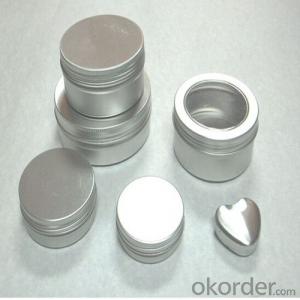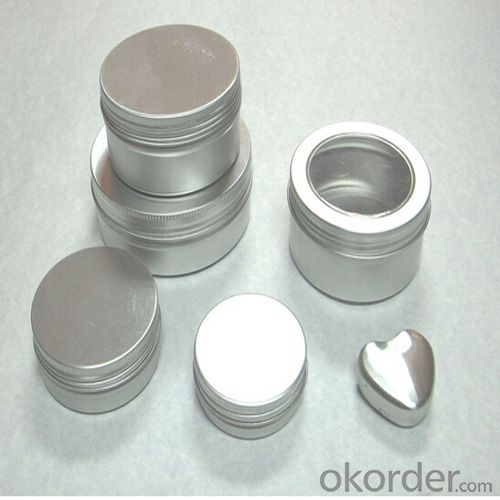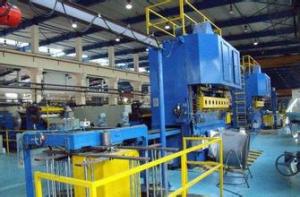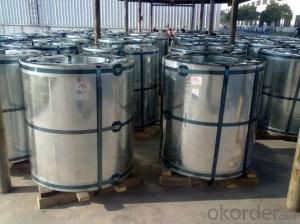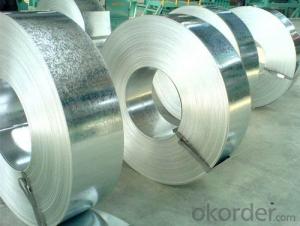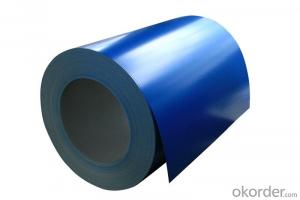Paul Frost High Quality Aluminum Closure Coils at Best Prices
- Loading Port:
- Shanghai
- Payment Terms:
- TT OR LC
- Min Order Qty:
- 5 m.t.
- Supply Capability:
- 10000 m.t./month
OKorder Service Pledge
OKorder Financial Service
You Might Also Like
Specification
1.Structure of Aluminum Closure Coils Description:
Aluminum Sheet for bottle closure is rolled to very fine tolerances to yield more closure per tonne of stock and to allow uninterrupted operation of high-speed, multiple-cavity presses. Such closure sheet its strength, high formability, low Earring and printable surfaces make it ideal for pilfer-proof caps and vial seals.
Closures from Signi assure long storage periods without any deterioration of the product. With suitable removal torque and high quality multicolour printing, its ROPP Closures are aesthetically unique and technically user friendly, perfect for re-sealability.
The broad categories of ROPP closures can be defined as Plain Printed Caps, Top Embossed Caps, Knurl Embossed Chamfered Caps, Side Embossed Chamfered Caps, Deep Drawn Caps, Extra Deep Drawn Side dry offset printed caps etc
2.Main Features of Aluminum Closure Coils :
Good Corrosion Resistance
Good Machinability
High Quality
Competitive Price
3. Aluminum Closure Coils Images:
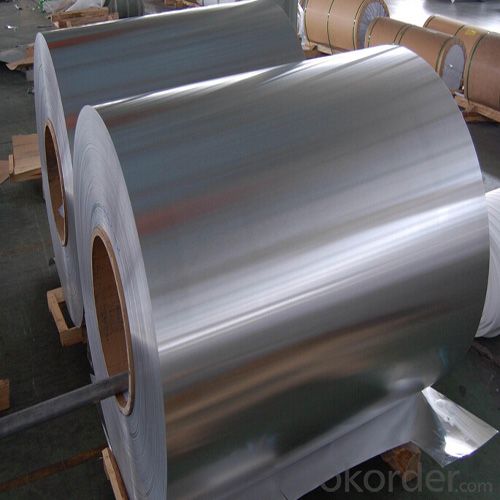
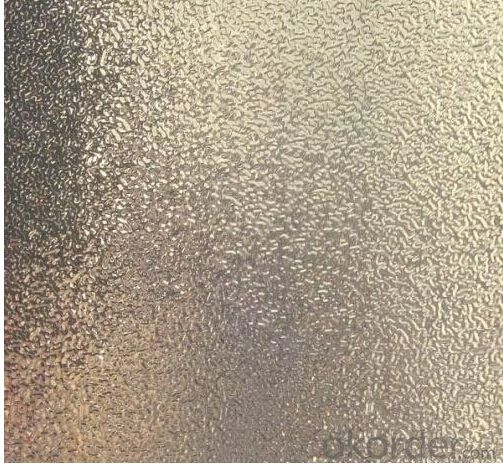
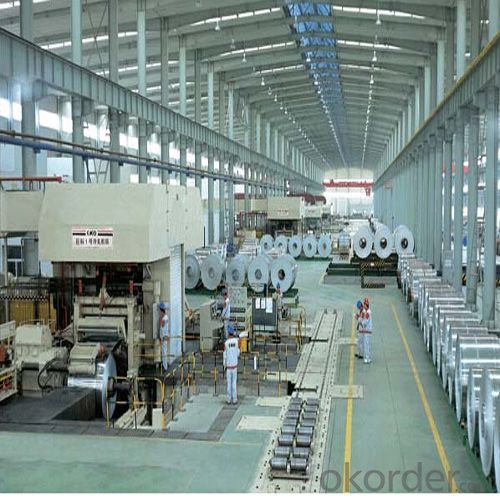
4. Aluminum Closure Coils Specification:
| Alloy No. | Thickness (mm) | Width (mm) | Length (mm) | Temper | |
| A1050,A1060, A1070,A1100 | 0.2-100 | 20-2200 | 20-8000 | O,H12,H22,H14,H16,H18, H24,H26,etc | |
| 3A21,A3003,A3105,A3004 | 0.2-100 | 20-2200 | 20-8000 | O,H14,H18,H24,etc | |
| A5052 ,A5005,A5083,A5754 | 0.2-100 | 20-2200 | 20-8000 | O,H18,H24,H32,H34,H111,H112 ,etc | |
| A6061,A6082,A6063 | 0.2-200 | 20-2200 | 20-8000 | T4,T6, T651,etc | |
| A8011 | 0.2-100 | 20-2200 | 20-8000 | O,H12,H22,H14,H16,H18,H24,H26, etc | |
5.FAQ
Q1.How long have you been in this product?
A1:More than 10 years.
Q2. What's the minium quantity(MOQ)?
A2. 5 Metric tons
Q3. How long is shipping time?
A3. 7 (ready-made products)-25 days(OEM)
Q4. How do you guarantee the quality?
A4. 1. Cooperating and Exchaning experience with sevral quoted aluminum companies
2. Japanese and Swiss production line and skilled works (regular training and testing)
3. more than 10 years production experience.
Q5. Do you have after sale service?
A5. Yes. Any quality problem occurs within one year, pls take photoes,we will be responsible.
- Q: What are the best rust-proof coils? Please tell me the model and manufacturer in Shangdong. Thank you.
- 3003 aluminum coil, AL-Mn series alloy, is the most widely used rust-proof aluminum with the density being 2.73. It is applicable to insulation projects such as pipe insulation, packaging, machine parts, refrigerator, air conditioning and ventilation pipes and other wet environment.
- Q: Are aluminum coils suitable for architectural cladding?
- Yes, aluminum coils are suitable for architectural cladding. Aluminum is a lightweight and durable material that is often used in the construction industry for its versatility and aesthetic appeal. Aluminum coils can be easily formed into various shapes and sizes, making them ideal for architectural cladding applications. One of the key advantages of using aluminum coils for cladding is their resistance to corrosion. Aluminum naturally forms a protective oxide layer, which helps to prevent rusting and deterioration over time. This makes aluminum a long-lasting and low-maintenance option for architectural cladding. Additionally, aluminum coils offer a wide range of finishes and colors, allowing for greater design flexibility. They can be painted or coated to match any architectural style or design concept, making them a popular choice among architects and designers. Furthermore, aluminum is an environmentally friendly material. It is fully recyclable and has a much lower carbon footprint compared to other cladding materials like steel or concrete. This makes aluminum coils a sustainable choice for architectural projects. In summary, aluminum coils are indeed suitable for architectural cladding due to their durability, resistance to corrosion, design flexibility, and environmental benefits.
- Q: What is the average lifespan of an aluminum coil?
- The average lifespan of an aluminum coil can vary depending on various factors such as the quality of the aluminum, the environment it is exposed to, and the maintenance and care it receives. Generally, aluminum coils are known for their durability and long lifespan. In most cases, a well-maintained and properly installed aluminum coil can last anywhere between 15 to 30 years. However, it is important to note that this is just an average estimation, and some coils may last even longer with proper care. Factors that can affect the lifespan of an aluminum coil include exposure to harsh weather conditions, such as extreme heat, cold, or humidity, as well as exposure to corrosive substances or chemicals. Regular cleaning and maintenance, including removing debris and addressing any signs of damage or wear, can also help extend the lifespan of an aluminum coil. In summary, while the average lifespan of an aluminum coil is typically between 15 to 30 years, it is important to consider various factors that can influence its longevity. Regular maintenance and proper care can significantly extend the lifespan of an aluminum coil.
- Q: How do aluminum coils compare to other types of metal coils?
- When comparing aluminum coils to other types of metal coils, there are both advantages and disadvantages. Firstly, aluminum coils are lightweight, making them easier to handle and transport than metals like copper or steel. This lightweight characteristic also contributes to their cost-effectiveness in terms of shipping and installation. Moreover, aluminum coils are highly resistant to corrosion, making them suitable for use in humid or corrosive environments, such as outdoor air conditioning systems or refrigeration units. Additionally, aluminum coils have excellent thermal conductivity, allowing for efficient heat transfer. This makes them highly efficient in applications like HVAC systems or automotive radiators. However, there are also drawbacks to using aluminum coils. Compared to copper coils, aluminum coils have lower electrical conductivity, which can lead to higher energy consumption and reduced efficiency in certain applications. Additionally, aluminum is a softer metal than copper or steel, making aluminum coils more susceptible to damage or bending. To summarize, aluminum coils offer advantages such as lightweight, corrosion resistance, and thermal conductivity. However, they may have lower electrical conductivity and be more prone to damage compared to other types of metal coils. Ultimately, the choice between aluminum coils and other types of metal coils depends on the specific requirements of the application.
- Q: Why does it take less energy to get aluminum metal from used cans than to get it directly from the ore?
- in order to extract the raw aluminum, you have to heat everything and melt it first, then remove the stuff that precipitates out as it cools or forms via chemical reaction with catalysts you introduce. With aluminum cans, you don't have to raise the temperature much above the melting point of aluminum, since it's already the substance in the can with the highest melting point. With aluminum ore, there can be anything in the ore with pretty much any melting point. In particular, if the ore contains an alloy of aluminum and a metal with a higher melting point than aluminum, then rest assured, you will have to raise the temperature of the ore above the melting point of aluminum in order to melt that alloy, In any case, because the maximum required temperature of the smelter needed to melt used aluminum cans is necessarily lower than the maximum temperature required to work with the ore, less energy is required to get aluminum from used cans than from ore.
- Q: Can aluminum coils be used in the production of beverage cans?
- Yes, aluminum coils can be used in the production of beverage cans. Aluminum is a preferred material for the manufacturing of beverage cans due to its lightweight, durability, and ability to preserve the taste and quality of the contents. Coils made of aluminum are typically used in the canning process as they can be easily shaped into a can form. The coils are rolled into sheets, which are then cut and formed into cans. Aluminum coils also have excellent heat conductivity, allowing for efficient cooling and faster production speeds. Overall, aluminum coils are an essential component in the production of beverage cans and are widely used in the industry.
- Q: Can aluminum coils be bent or shaped?
- Yes, aluminum coils can be bent or shaped with the appropriate tools and techniques.
- Q: This question seeks advice on methods to prevent rust formation on aluminum coils.
- <p>To prevent rust on aluminum coil, ensure proper storage conditions by keeping the coils dry and avoiding contact with moisture. Use protective coatings or sealants that are compatible with aluminum to create a barrier against the elements. Regularly inspect the coils for signs of corrosion and clean them with a non-abrasive cleaner to remove any contaminants. Avoid using harsh chemicals that could accelerate oxidation. Maintain good ventilation in storage areas to reduce humidity, which can contribute to rust formation. Finally, consider using anodizing or other surface treatments that enhance the aluminum's natural resistance to corrosion.</p>
- Q: I bought a house that is older with aluminum windows, and the last owner did not seem to clean them for quite some time. The aluminum frames are a silvery milky white color and my neighbors that have the same windows look like chrome. I have brushed these windows with scrub brushes and green scouring pads even aluminum wheel cleaner, now my frame is a clean milky grey color, it just isnt polished like my neighbor has it, his is like chrome. I have tried silver polishes and this doesn't remove the grey film either - i need something stronger. Can anyone help???
- try alot of pure white vinigar on them. It works wonders.
- Q: Can aluminum coils be used in vacuum applications?
- Yes, aluminum coils can be used in vacuum applications. Aluminum is a commonly used material in vacuum systems due to its excellent properties such as low outgassing, high thermal conductivity, and good corrosion resistance. These properties make aluminum coils suitable for various vacuum applications, including but not limited to, vacuum chambers, vacuum pumps, cryogenic systems, and particle accelerators. However, it is important to note that aluminum can be reactive with certain gases or chemicals, so it is essential to consider the specific requirements and compatibility of the vacuum application before using aluminum coils.
Send your message to us
Paul Frost High Quality Aluminum Closure Coils at Best Prices
- Loading Port:
- Shanghai
- Payment Terms:
- TT OR LC
- Min Order Qty:
- 5 m.t.
- Supply Capability:
- 10000 m.t./month
OKorder Service Pledge
OKorder Financial Service
Similar products
Hot products
Hot Searches
Related keywords
